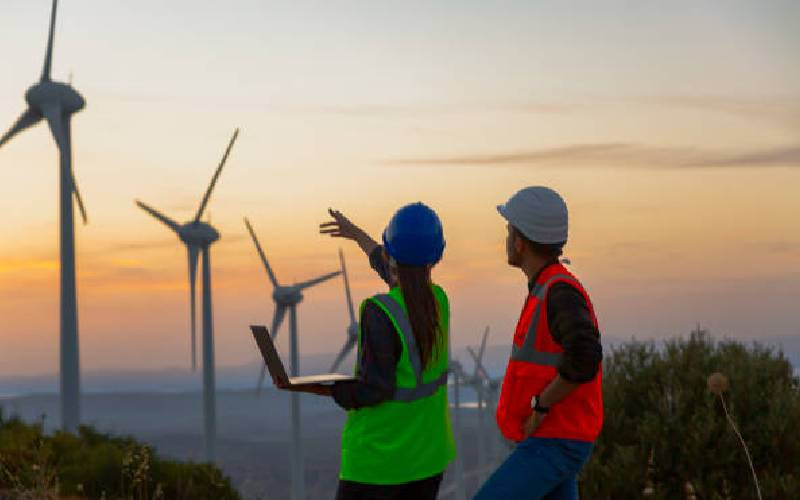
Africa could potentially generate more than enough electricity to power its entire demand 250 times over from wind energy alone. Yet, more than half of the population lack access to electricity; and those connected endure frequent power cuts as a result of undersupply and underdeveloped grid networks.
Besides its abundance and sustainability, wind resources could offer households and businesses much affordable power, boost new connections and significantly help address energy poverty. A new, bolder approach is needed to propel wind power development both as an answer to energy supply gaps and as a tool for fighting climate change.
First, we need strong policy and regulatory frameworks. Governments across Africa need to establish supportive policies and regulations that incentivise the development of wind energy projects.
Investment and financing are the next components. The higher cost of capital for renewable energy projects in Africa presents a huge barrier. There's also a need to strengthen the infrastructure essential for the expansion of wind energy. This includes expanding the coverage of transmission lines and upgrading grid networks to accommodate increased injection of wind power.
Technology transfer and capacity building is yet another important pillar in the adoption and deployment of wind energy technologies. Collaborative efforts between developed and developing countries can facilitate technology transfer, skills development, and training programmes for local communities, engineers, and technicians.
Also important is community engagement and local ownership. Engaging local communities in the decision-making process and ensuring their participation and ownership of wind energy projects can foster social acceptance and local economic development.
The existing technologies wouldn't happen without research and development. Continued research and development efforts are crucial for advancing wind energy technologies, increasing efficiency, reducing costs, and addressing specific challenges related to deployment in regions with energy poverty.
Lastly, there's a need to enhance international cooperation and partnerships. Collaboration between countries, international organisations, and development agencies can help mobilise resources, share best practices, and promote knowledge exchange to accelerate the adoption of wind energy in undersupplied regions.
- Trump's climate change remarks threaten lives of people in Africa
- Powerless: The irony of power outage at Africa energy summit
Keep Reading
Beyond helping tackle energy poverty, wind power development creates jobs and attracts investment into African economies. Investing in wind energy can equally promote the growth of domestic manufacturing industries.
-The writer is the director of Africa Wind Power, an initiative of the Global Wind Energy Council (GWEC)
 The Standard Group Plc is a multi-media organization with investments in media
platforms spanning newspaper print
operations, television, radio broadcasting, digital and online services. The
Standard Group is recognized as a
leading multi-media house in Kenya with a key influence in matters of national
and international interest.
The Standard Group Plc is a multi-media organization with investments in media
platforms spanning newspaper print
operations, television, radio broadcasting, digital and online services. The
Standard Group is recognized as a
leading multi-media house in Kenya with a key influence in matters of national
and international interest.




